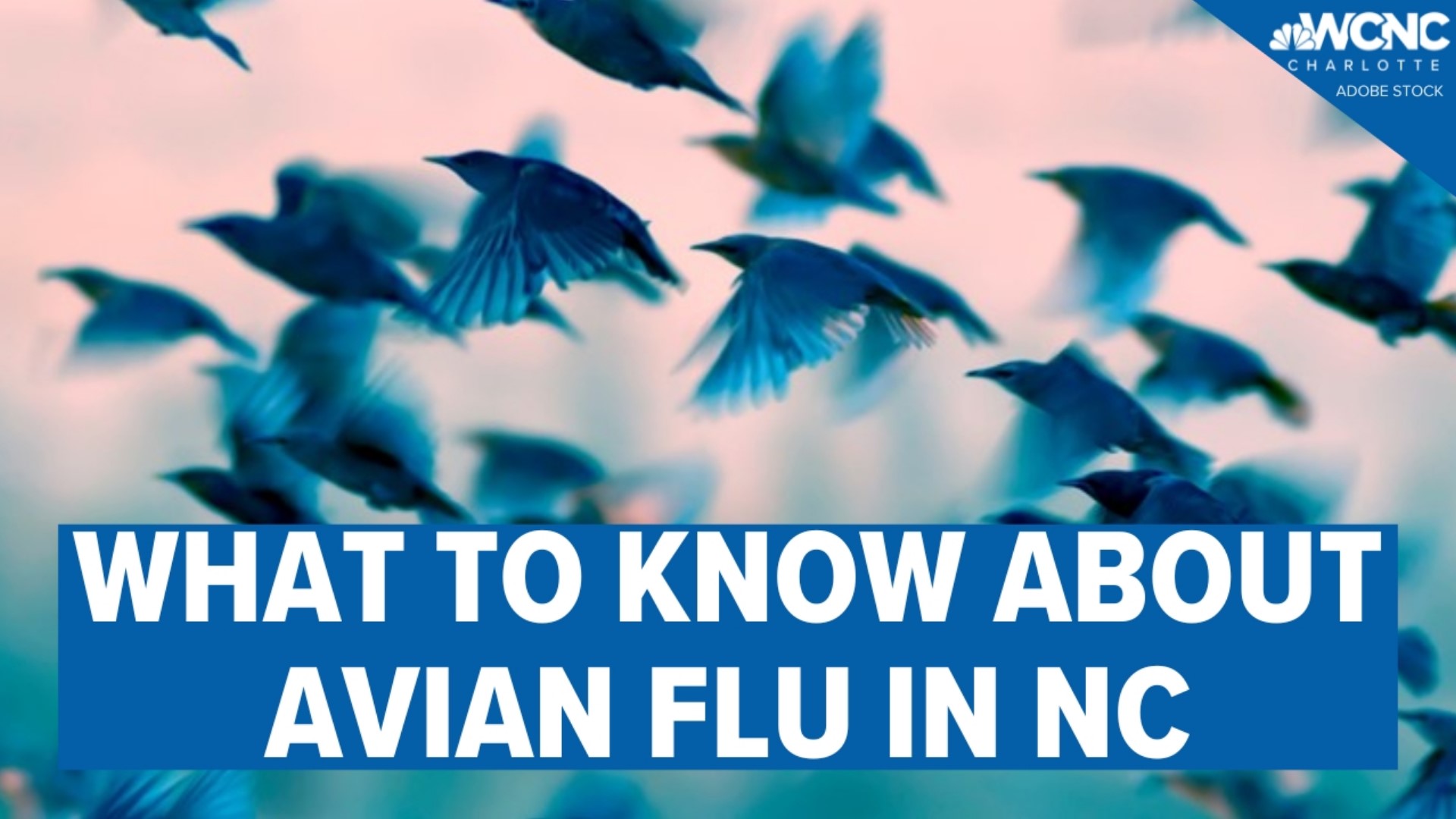UNION COUNTY, N.C. — North Carolina wildlife officials ask bird owners in the Charlotte region to be on high alert since a particularly concerning strain of bird flu has now been detected in the area.
Friday, the state confirmed the first case of highly pathogenic avian flu in a backyard flock in Union County.
While the virus is considered to be low-risk for humans, it can spread quickly and be deadly for birds.
Dr. Michael Martin, North Carolina state veterinarian with the Department of Agriculture, said some wild birds like black vultures and waterfowl like ducks, geese, and swans can help spread this virus through their droppings. While these birds carry the virus, they might not show any signs.
"This virus is very, very lethal, and it can carry and spread amongst all these other birds that you might own," Martin said. "This is an outbreak that's gone on way too long. It's unclear how much longer it's going to go on, but I encourage your viewers to be vigilant and stay vigilant throughout the holidays."
Vigilance might include keeping your flock separated from those types of birds and their droppings by keeping them in their coops, or taking particular care in changing clothes and shoes if you've been in an area with waterfowl.
The state also says bird feeders, while likely to be low-risk in spreading the virus, might not be worth the risk of attracting outside birds to your flock.
Anyone who comes across a sick or dead wild bird can report it to the NC Wildlife Resources Commission's Wildlife Helpline by calling 1-866-318-2401 or emailing hwi@ncwildlife.org.
Contact Vanessa Ruffes at vruffes@wcnc.com and follow her on Facebook, Twitter and Instagram.

